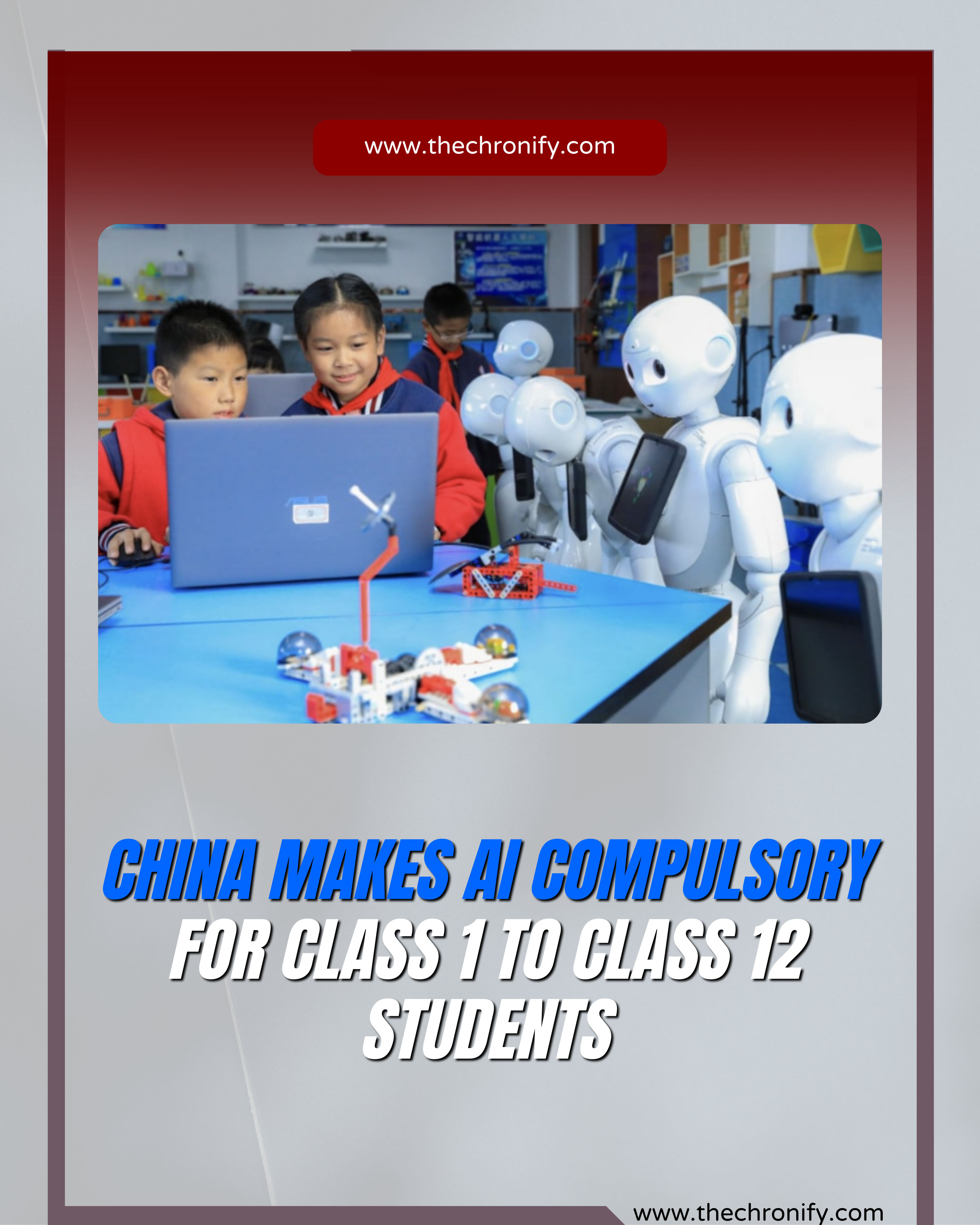China Makes AI Education Mandatory in Schools Starting 2025 to Boost Global Tech Leadership
In a significant move to enhance its position in the global artificial intelligence (AI) landscape, China has announced that AI education will become a mandatory part of the national curriculum across all primary and secondary schools starting September 1, 2025.
Under this new policy, students from elementary to high school will receive at least eight hours of AI instruction annually. The initiative is part of China’s broader strategy to build a tech-savvy generation capable of driving future innovation and maintaining the country’s competitive edge in emerging technologies.
Flexible Curriculum Designed for All Levels
Schools will have the option to integrate AI topics into existing subjects or introduce them as dedicated courses. Young learners in primary grades will explore foundational concepts through engaging and practical activities. As students progress to middle school, they will begin studying AI’s real-world uses. High school education will focus on advanced topics, including the innovative applications of AI in various industries.
The goal is to ensure that students not only understand AI but are also equipped to apply it creatively and ethically as they enter the workforce or pursue further studies.
Strategic Vision Backed by National Policy
China’s Ministry of Education, led by Minister Huai Jinpeng, is spearheading the reform. He recently announced plans to release a comprehensive white paper on AI education in 2025. The document will outline China’s long-term goals, policy framework, and the roadmap for embedding AI into its education system nationwide.
This white paper is expected to serve as a key reference for schools, educators, and policymakers as China scales up its tech literacy efforts.
Global Context and Forward Momentum
China’s move comes as countries around the world—such as the United States and Italy—also expand their AI education initiatives. However, Beijing’s structured and nationwide rollout places it at the forefront of this educational transformation.
By embedding AI knowledge at an early age, China aims to cultivate a generation of digital-native innovators ready to shape the future. This shift not only empowers students but also strengthens China’s long-term ambitions in science, technology, and global leadership.

